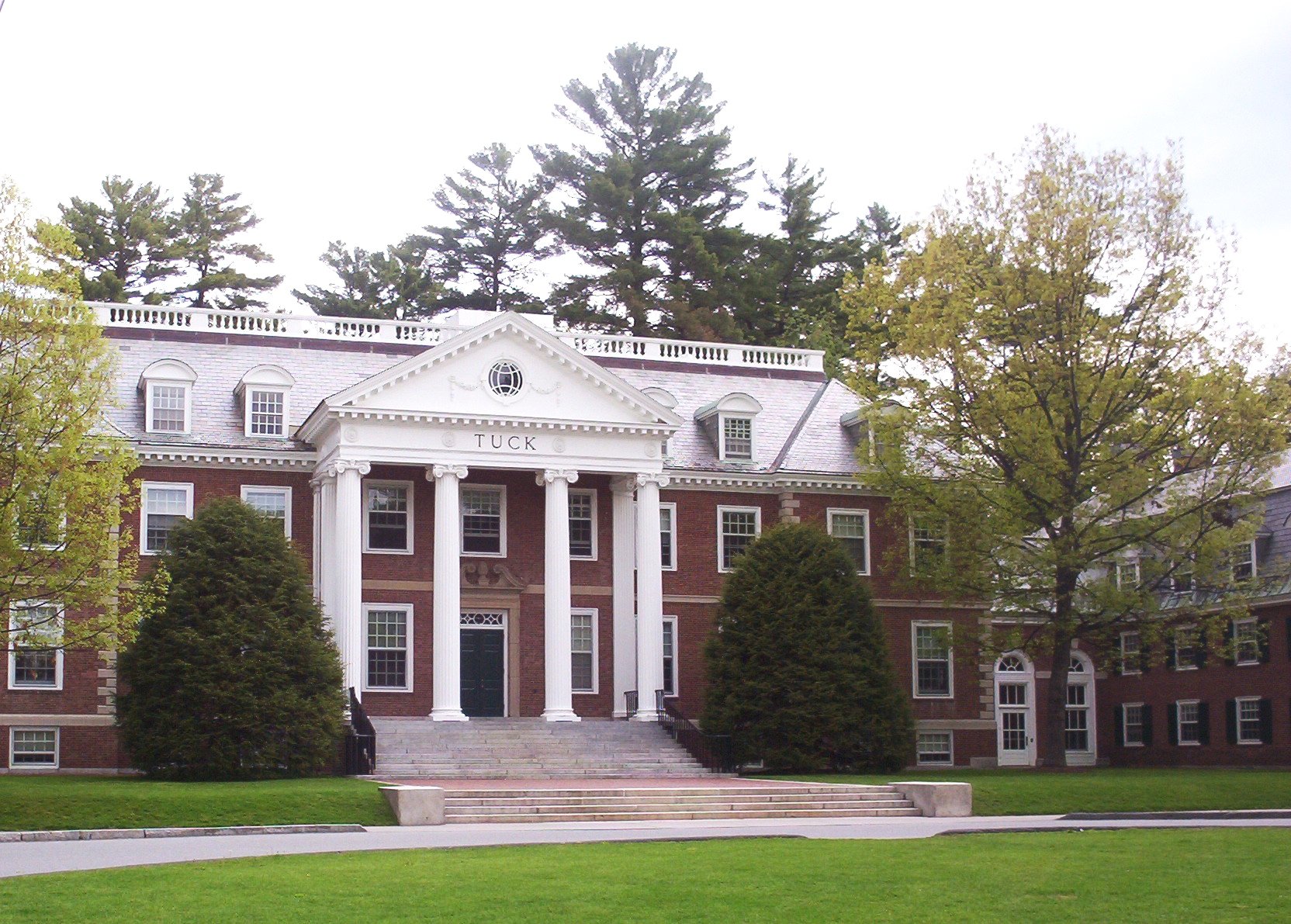Tuck got a $52.1 million gift from an unnamed acquaintance six months ago to fund a recurrent global summit on health, wealth, and sustainability held by Tuck. What exactly does this mean? This conference will discuss the intersection of public policy, health care, and climate change, as well as establish Tuck as a hub for funding in these fields. What does this mean for you? Tuck wants to turn into a ground zero for scholarships in this field.
2022–2023 Dartmouth Tuck MBA Essay Questions & Analysis
The first MBA essay question asks you to write about your career goals. Tuck wants you to tell them a) what your career goals are, b) why you want to get an MBA, and c) why you want to go to Tuck in particular. You only have 300 words for this essay question, so talk about each of these three things directly and succinctly.
What the 10 Best Business Schools in the Northeast Have to Offer
What Is The "Ivy League" and Should You Care?
If you plan to apply for an MBA at one of these schools, here are some things you should know. The overall acceptance rates in 2021 were below 7%. Therefore, it is imperative that your MBA application must be highly competitive. Each admissions committee at each institution is looking for something slightly different. Make sure you do your homework to discover if you are an ideal fit for your specific MBA target programs. Many MBA programs rank highly but charge a lesser tuition fee. As a result, an "alternative" school may be a better option.
East Coast vs. West Coast MBA Campuses
Tuck Announces MBA Tuition Freeze
What is the Tuck MBA Program is Best Known For?
The Tuck School of Business at Dartmouth College holds the distinguished title of first graduate school of management in the world. Founded in 1900, the school was quite literally the blueprint for every business school that followed and remains solidly in the top tier today. While there has been plenty of evolution behind Tuck’s hallowed doors over the years, the core values and traits which made Tuck a great business school have remained remarkably consistent. Here are three features of Tuck which make it unique:
The MBA Round 2 Advantage
It's the time of year where I start having the "Round 2 conversation" a lot with individual clients. Basically, the idea is that Round 2 might be offering a slight advantage, based on theories of market inefficiencies and so forth. For years, the prevailing belief is that Round 1 is the best round to apply to business school. While there is no hard-core evidence to suggest otherwise, some common sense may point to a different result.
Ranking the Best MBA Programs for Pharmaceutical/ Biotech/ Healthcare Jobs (2015)
Entering 2015 school year, Duke Fuqua comes out on top when it comes to sending MBA graduates (as a percentage of all graduates in 2014) into the pharmaceutical, biotech and healthcare industries - 9% of its graduating class get jobs in these industries. Dartmouth Tuck, Wharton and MIT Sloan hold their own, coming in at 2nd, 3rd and 4th best.
Cognitive Bias and Tuck's 2014 Essays
Tuck released its new essays and they feature no changes to Essay 1, the removal of one word from Essay 2, and the cutting of their old Essay 3 (on setback/failure).
No doubt everyone in this space will be analyzing those changes today (I am too), but my guess is they will come to incorrect conclusions in many cases. There are a lot of reasons why people make incorrect determinations when analyzing changes, but much of it can be attributed to cognitive bias - everything from recency bias to bounded rationality to confirmation bias. We tend to read things in one way and our flow of assumptions follows that set path. I will explain what I mean with the context of each questions - but just be forewarned that this blog post serves two functions: an analysis of Tuck's questions, but also an attempt to figure out why people trip up and make errors in interpretation.
Don't Apply Round 3 ... Until You Read This Post!
The common myth surrounding Round 3 of the MBA application process is that you can't, or shouldn't, apply late in the admission cycle. "The class is pretty much full" is one refrain. "You have to be a truly unique applicant" is another. "Only European programs admit people that late" is yet another. As with anything, there are bits of truth in these sound bites ... but only bits.
Tuck vs. Kellogg - Which MBA for entrepreneurial finance / private equity / venture capital?
We all know that these jobs are hard to get no matter what school you go to. For any "career switcher" out there, you are going to face the challenges anyone with a more finance-oriented background would have - except that a career switcher is going to face these issues on some order of magnitude that is higher and harder. The factors below already take that into consideration.
Kellogg vs. Tuck for PE/VC - it's a toss up.

















